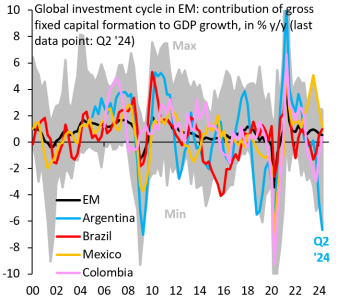Exactly! This 235% inflation was caused by Milei. Private healthcare companies were limited before how much they could raise their fees. If you look at how much they have gone up in less than 1 year it is almost exactly at the 235% they mention in the FT article. Look at utility rates, building expenses, transportation and many other expenses and the true inflation is up significantly and the recession continues.
I posted before about this but this is nothing new what Milei and Caputo are trying. It has been tried again and failed. Do your research and you will see why it failed. They are trying to do exactly the same thing.
The Return of International Finance and the Martínez de Hoz Plan in Argentina, 1976–1978 - Volume 53 Issue 4

www.cambridge.org
I will summarize if you dont' want to read the content.
"The Return of International Finance and the Martínez de Hoz Plan in Argentina, 1976–1978" published in the Latin American Research Review discusses the economic policies implemented in Argentina during the early years of the military dictatorship, specifically focusing on the tenure of José Alfredo Martínez de Hoz as the Minister of Economy. Here's a brief outline:
- Context:
- Argentina was under a military dictatorship from 1976 to 1983. The regime aimed to restructure the Argentine economy, which was suffering from high inflation, economic stagnation, and political instability.
- Martínez de Hoz Plan:
- Economic Stabilization and Liberalization: Martínez de Hoz introduced a series of economic reforms intended to curb inflation, open up the economy to international markets, and reduce the state's role in the economy. This included financial liberalization, reducing trade barriers, and deregulating markets.
- Financial Reform: There was an emphasis on attracting foreign capital. The financial system was reformed to encourage foreign investment and loans, leading to an influx of international finance.
- Exchange Rate Policy: The plan implemented a pre-announced devaluation schedule known as "la tablita," which aimed to reduce inflation by setting a slower pace for the devaluation of the peso against the dollar.
- Effects of the Plan:
- Short-term Economic Effects: Initially, there was a reduction in inflation and an increase in foreign investment. However, this also led to an overvalued currency which hurt exports and encouraged imports, leading to trade imbalances.
- Debt Accumulation: The openness to international finance resulted in significant borrowing from abroad, increasing Argentina's foreign debt dramatically.
- Social and Economic Impact: The policies had mixed results. While they initially stabilized some economic indicators, they also led to deindustrialization, increased unemployment, and significant social costs due to the reduction in subsidies and public spending.
- Criticism and Failure:
- Critics argue that the Martínez de Hoz plan favored financial speculation over productive investment. The plan's reliance on international finance made Argentina vulnerable to global economic fluctuations.
- By 1978, the plan started to show signs of failure as inflation rose again, and the economic situation deteriorated, leading to a crisis that would eventually contribute to the economic turmoil of the early 1980s.
- Legacy:
- The period is often analyzed for its long-term impact on Argentina's economic structure, particularly how it set the stage for the debt crisis of the 1980s and influenced subsequent economic policies in Argentina regarding finance, debt, and economic liberalization.




